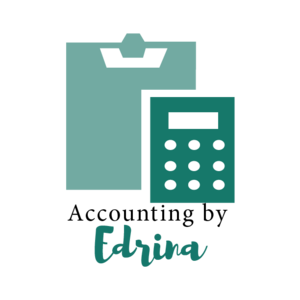What to do if you can’t pay your taxes
What to do if you can’t pay your taxes
This was transcribed and paraphrased from the above video. Please view for full examples.
For many people the pandemic brought on a whole host of new concerns, and one of those concerns might be what to do if I cannot pay my taxes. I'm going to walk you through a couple of options that the IRS has available to you online at the IRS.gov that you might not be aware of.
You can do all of these things from the comfort of your own home.
The first thing that I want to draw your attention to is filing an extension for your tax return; when you go through the process of filing an extension you need to understand that the extension is only to file your tax return and it is not for payment. For example in 2021, taxes due are May 17th, and if you cannot do that then you file this extension to file your tax return. What you need to do is to pay as much as you can by the filing date and then pay the rest come October 15th. That is when the extension of time to file would be due, so if you don't file for an extension to file your tax return then you will get hit with a five percent late filing penalty per month! So to avoid being charged a large penalty it's always recommended that if you're having issues with filing your tax return, file for an extension to file your tax return, and pay as much as you can and then pay the rest come October 15th. I just wanted to make sure that was very clear upfront- filing an extension is not a filing for an extended time to pay your tax return, those are two separate things.
So let’s talk about what happens if you can't pay your tax bill in full. If you come over to the IRS.gov payments, there's going to be an option for an online payment agreement application. When you look at this page the first thing that you want to do is to check and see if you do qualify. This section is talking about the two different types of payment plans that the IRS offers. The first type of payment plan that the IRS offers, is a short-term payment plan for those who owe less than a hundred thousand dollars combined in tax penalties and interest. The second type of payment plan is the long-term payment plan which is the installment agreement if you owe fifty thousand dollars or less in combined tax penalties and interests- I know that sounds confusing so let's go through this a little bit more in detail. I will put a link so you can read this at your own leisure but basically here is all the information that you would need in order to provide for the application process. Everyone's going to need to go through the application process and you would just click on the ‘Apply/Revise as Individual’ button in order to apply for the application process. I want to cover what this will cost... so we all know that the IRS loves to add penalties and interests and fees and things like that so it is highly recommended that you do go ahead and pay as much as you can by the filing date. But if you cannot afford to do that then there are a couple of options. There are three options ‘Pay amount owed in full today’ using direct pay, the ‘Short term payment plan’ is a 120 days or less and it's a zero dollar setup fee plus accrued penalties and interest until the balance is paid in full, (they're always going to charge a penalty and an interest and it just depends on how many days you are late in paying your taxes that will get accrued as interest and penalties so that'll be the total tax bill). And the last option is the ‘Long-term payment plan’ or ‘installment agreement’ and this is where you can pay a monthly amount. Paying monthly through automatic withdrawals will be set up through your bank account and there will be a $31 set up fee. Now, there is a non-direct debit that you can pay each month which has a $149 setup fee, if you choose to do that as well.
When you go through the application process of creating a payment plan, I believe that most of the individuals who apply for this do get approved for a payment plan, but if there is a more complicated tax situation then I would definitely recommend hiring a cpa or a tax attorney because you're going to want to go through some different channels that aren't discussed in this video.
So the other thing that I wanted to point you to is that you would need to be creating an account online through the IRS.gov for this process, and in fact I would actually recommend that you do this in general even if you don't need a payment plan because there is so much information that could be beneficial for you and you can view past tax history and you can actually request a transcript of your tax record to see kind of like the summary of your tax returns.
Please view the video for full transcription and detailed examples.
Website used in video: http://www.irs.gov/payments
